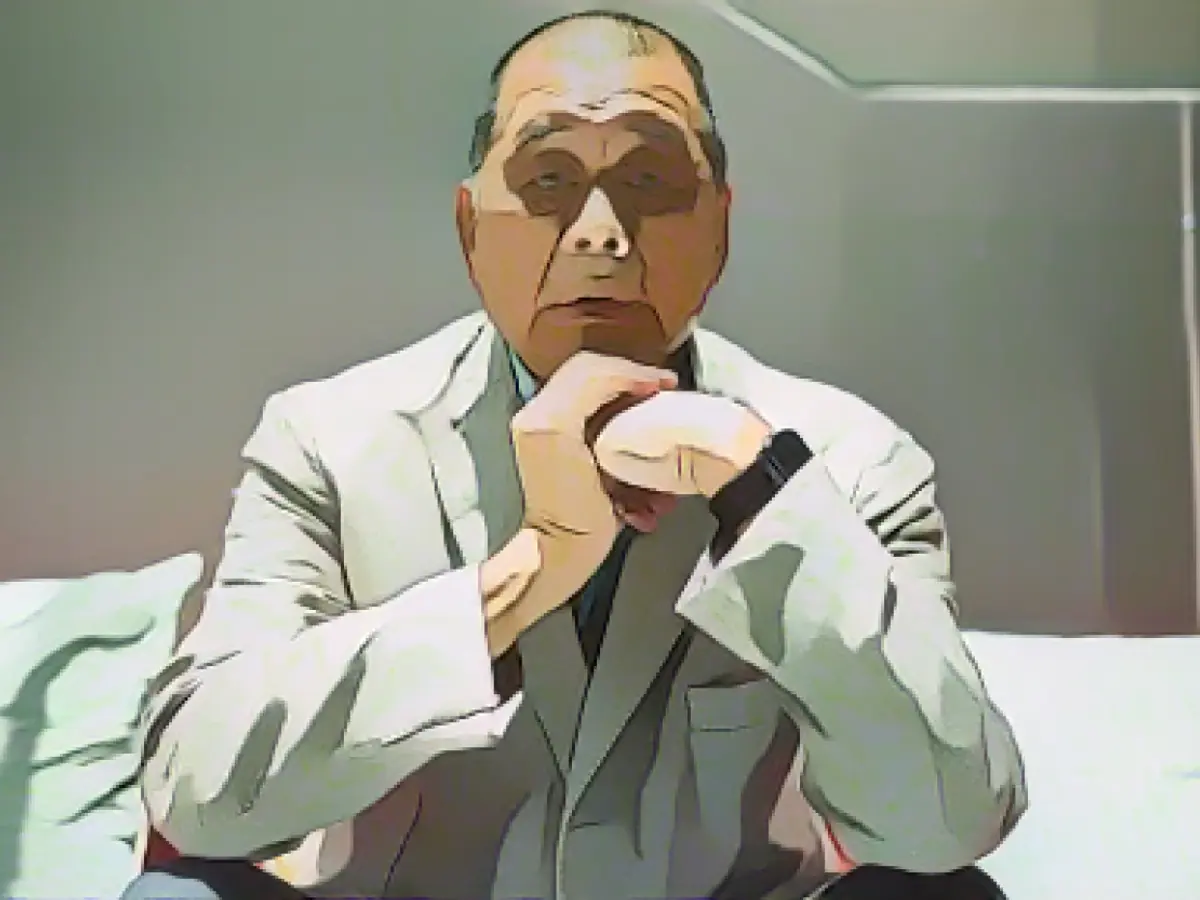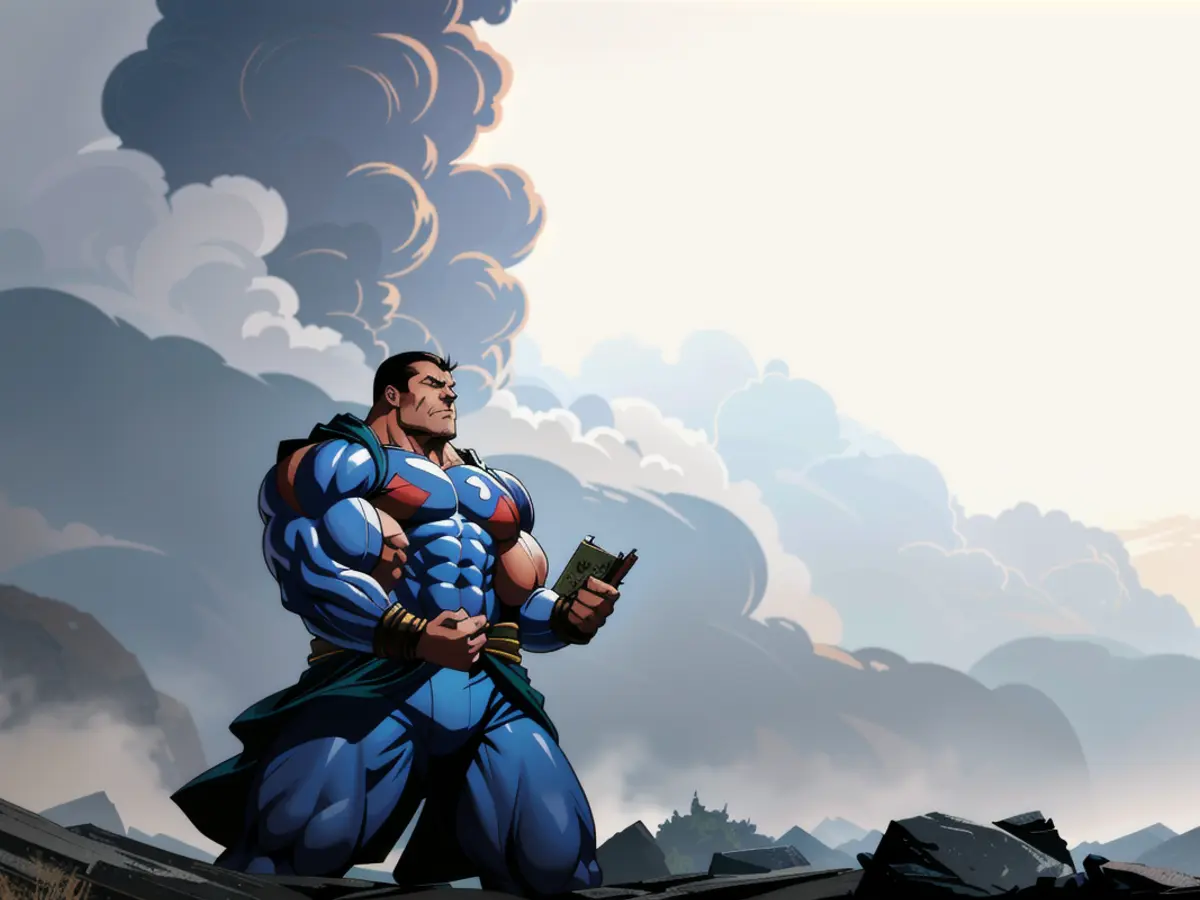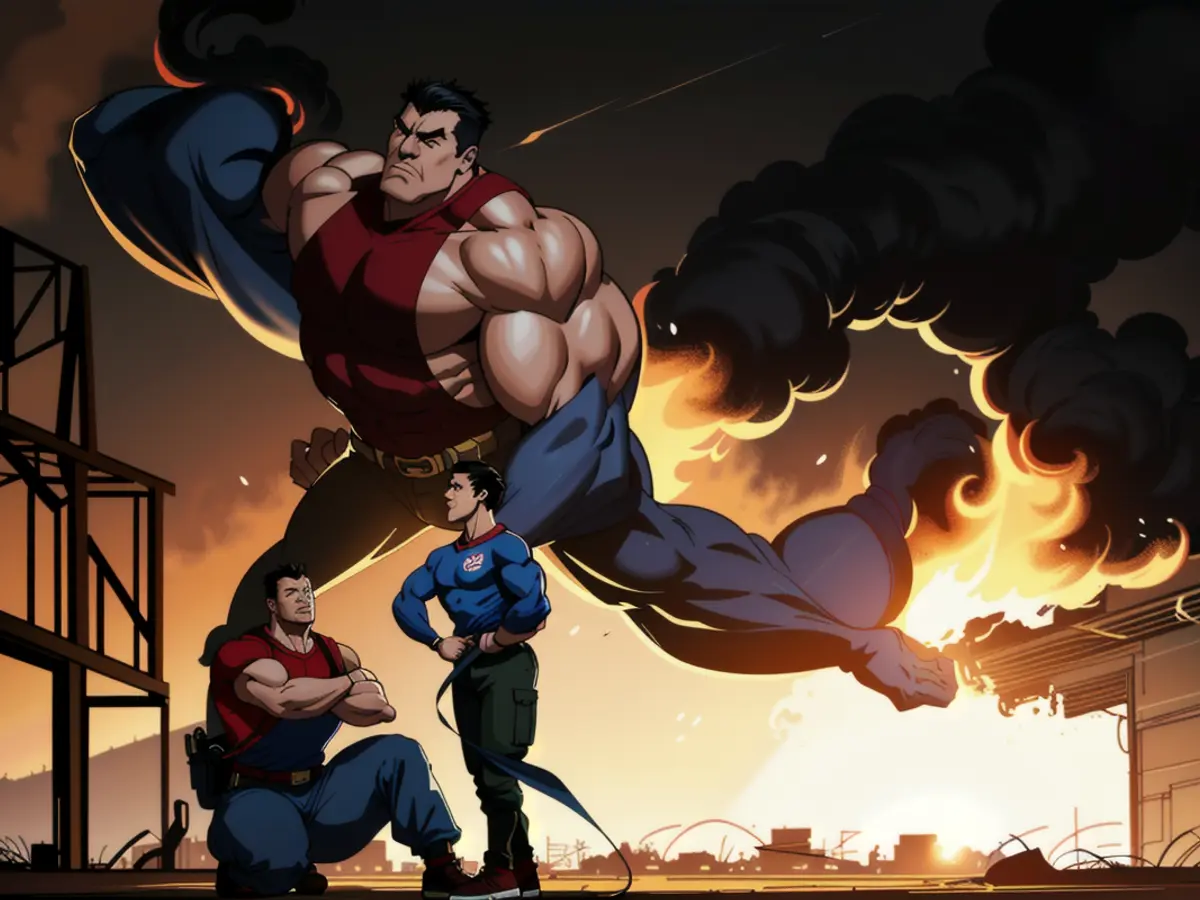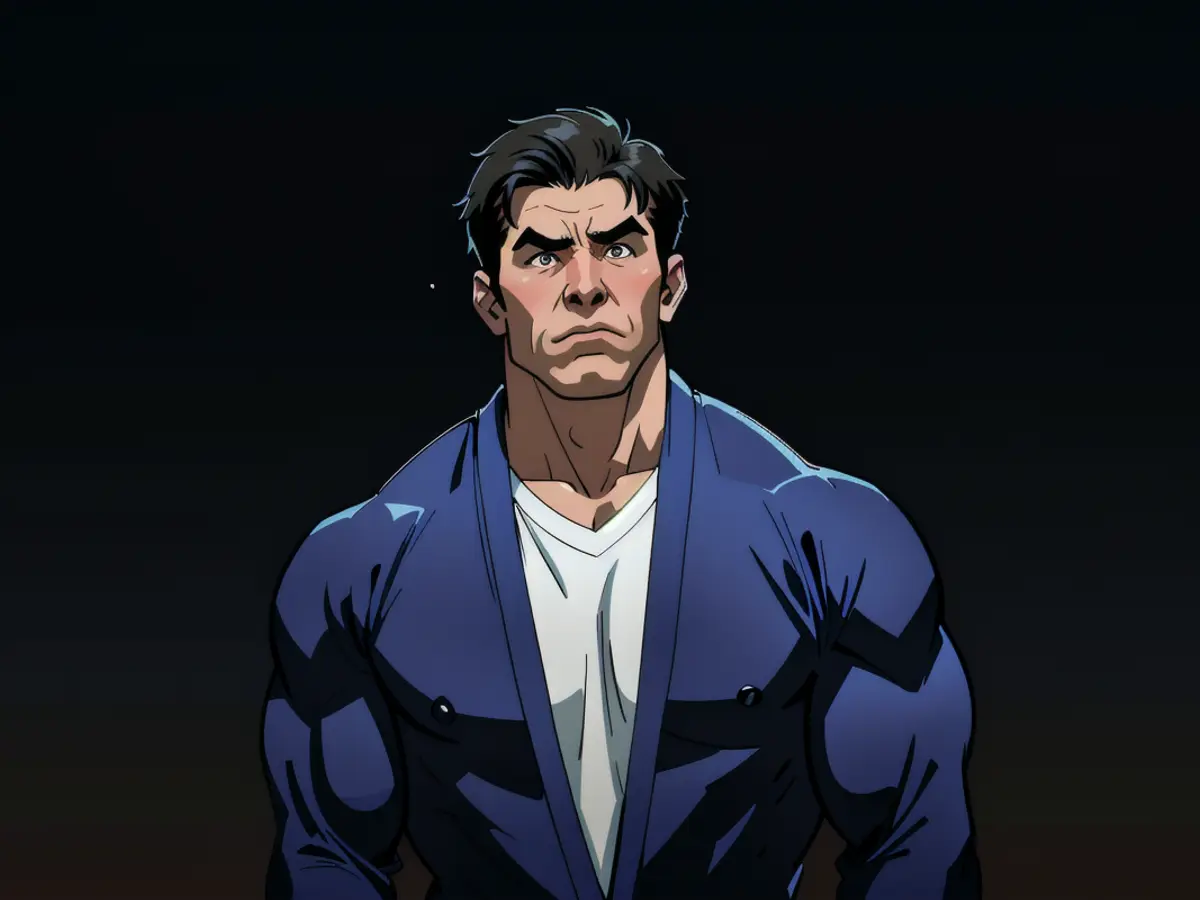Pro-democracy media mogul Jimmy Lai faces his biggest legal challenge yet
Jimmy Lai, a prominent Hong Kong figure associated with the pro-democracy movement and Apple Daily, a pro-democracy newspaper, has been in prison since 2020 on various charges. With a trial scheduled to begin on Monday, Lai faces up to life in prison if found guilty of collaborating with foreign powers and incitement to hatred.
The trial, expected to last at least 80 days, is set to be one of the most high-profile cases against a Hong Kong media figure since the city's handover to China in 1997.
Lai, a long-time thorn in Beijing's side, is being charged with colluding with foreign powers, an offense punishable under China's sweeping National Security Law, which was enacted in response to 2019's pro-democracy protests in Hong Kong. He is also facing separate charges of incitement to hatred.
Critics argue that the law is being used to erode Hong Kong's freedoms and undermine its legal system. As in previous national security-related cases, the trial will not have a jury, and it will be led by judges from the national security panel, who are appointed by a pro-Beijing committee.
Lai's legal team has been obstructed in their attempts to hire British counsel, a decision that is the subject of a separate legal challenge.
In an interview with CNN, Lai's son Sebastian said, "I think mentally he was quite strong, but there's always that element that no one can escape the allure of old age, and at this age he's exposed to a great risk of maximum security."
Lai, once a prominent figure in Hong Kong, has been largely silent since his multiple arrests.
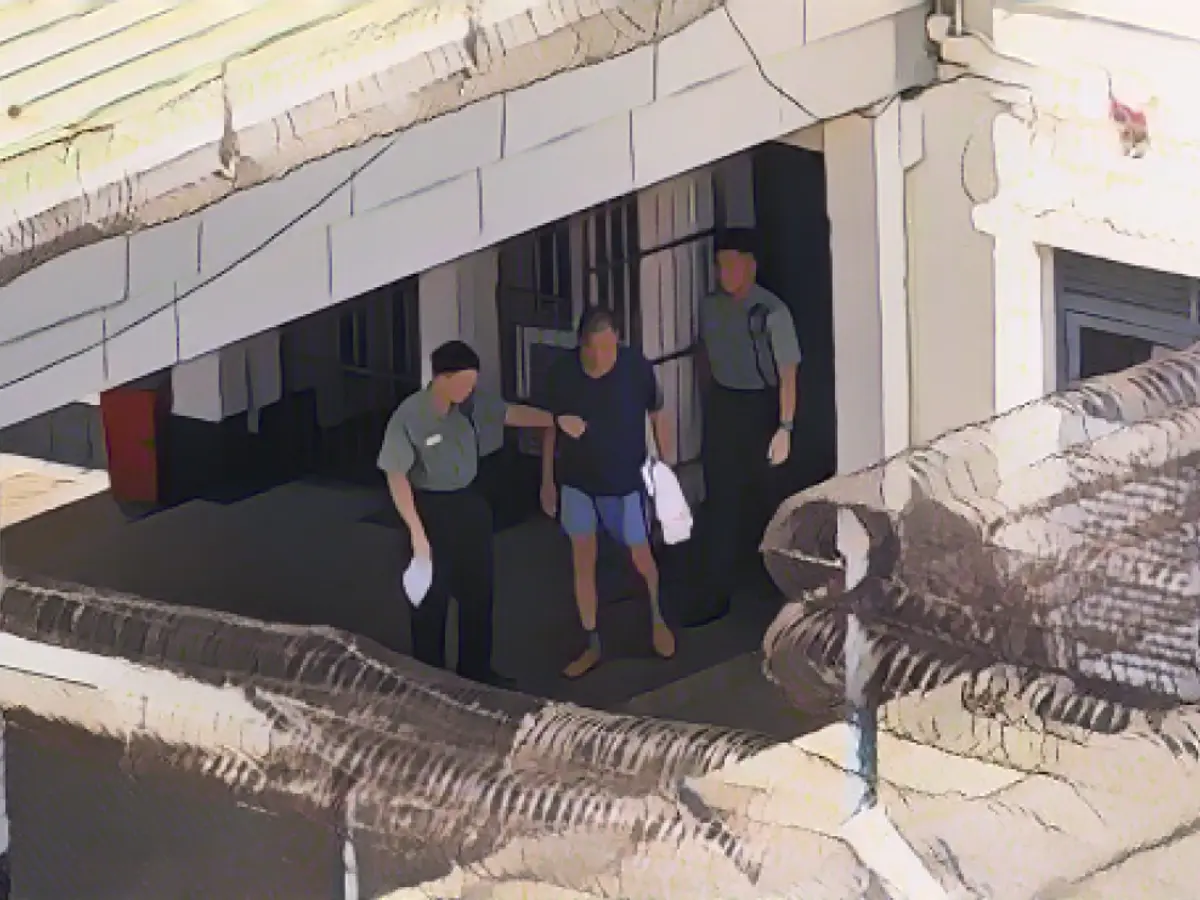
Lai's son met with the British Foreign Secretary last week to advocate for his father's release, as he has done in the United States and Canada.
Chinese authorities have dismissed criticism of Lai's charges, and in a weekly press conference, the Chinese Foreign Ministry spokesperson confirmed their ongoing support for the prosecution.
The spokesperson called Lai "one of the most notorious China-baiters in Hong Kong" and "the mastermind of the unrest in Hong Kong." They accused him of working with foreign powers, endangering China's national security, and committing numerous bad deeds. The Hong Kong government, they said, has taken necessary measures to hold him accountable in line with the law.
Hong Kong authorities have maintained a more reserved tone and refused to comment on individual cases while defending the methods used by the police and prosecutors in handling national security cases.
"Without discussing specific cases, we would like to remind everyone that the law enforcement agencies in the SAR [Special Administrative Region] of Hong Kong always take effective and law-based enforcement actions against the behavior of relevant individuals or organizations," a government spokesperson told CNN (CNN).
"All cases that endanger national security are handled fairly and promptly," they added.
CNN reached out to Lai's legal team for comments before the trial but received no response.
Sarah Brooks, the deputy director for China at Amnesty International, said, "This trial embodies the rapid decline of the rule of law in Hong Kong."
"This case was fomented from the start as an attack on press freedom. The Hong Kong authorities must immediately and unconditionally release Jimmy Lai and vacate the criminal charges against him. No one should be prosecuted simply for exercising their human rights," Brooks said in a statement last week.
"The Committee to Protect Journalists" described the trial as "a travesty of justice."
"What is on trial in Hong Kong is freedom of the press and the rule of law," said Ma Liyi, Asia program coordinator at the Committee to Protect Journalists.
Record-breaking tycoon
Jimmy Lai's personal and financial success are deeply intertwined with the history of modern Hong Kong. In 1960, when the Chinese mainland was hit by a great famine, Lai, then 12 years old, smuggled himself onto a fishing boat from the southern province of Guangdong and eventually arrived in the British colonial territory of Hong Kong. He arrived penniless and lived in one of Hong Kong's poorest neighborhoods, Sham Shui Po.
Lai recounted earning 60 Hong Kong dollars (7 US dollars) a month with a part-time job in a textile factory and living with ten other people in a single room. Within two decades, Lai had learned English, started his own retail business, and eventually became a millionaire by founding the successful men's clothing chain Giordano.
But China's violent suppression of student demonstrations in Tiananmen Square in 1989 politicized Lai and led him to become an outspoken critic of the Chinese government. He left the clothing business and entered the media world to found Apple Daily in 1995, two years before the city was returned to China.
The tabloid-style daily, modeled after USA Today, caused a mini-revolution in Hong Kong's media landscape, initiating a price war and pushing competitors to innovate while maintaining its tabloid sensationalism.
Despite a focus on celebrity gossip and other paparazzi fodder, Apple Daily also became a fierce critic of the local government and Beijing, winning awards for its investigative journalism and exposés on corruption and human rights abuses. It openly supported the series of protests for democracy that swept Hong Kong in 2019, with Lai often participating in events, even in heavy rain or blasting heat.
As clashes between protesters and police grew increasingly violent, calls for Hong Kong's independence from China grew louder – a red line in the eyes of Beijing, which rejected all pro-democracy appeals and branded the demonstrators as foreign-backed agitators and criminals.
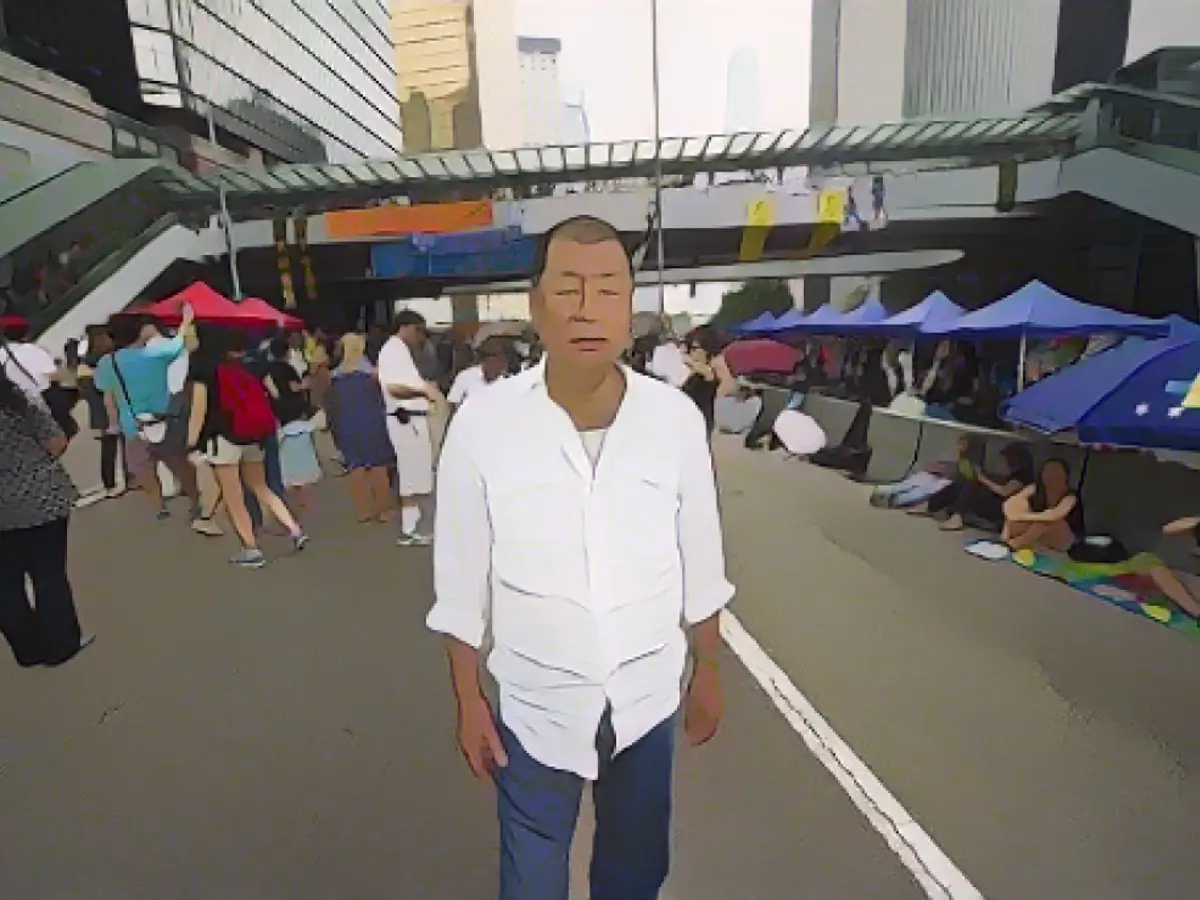
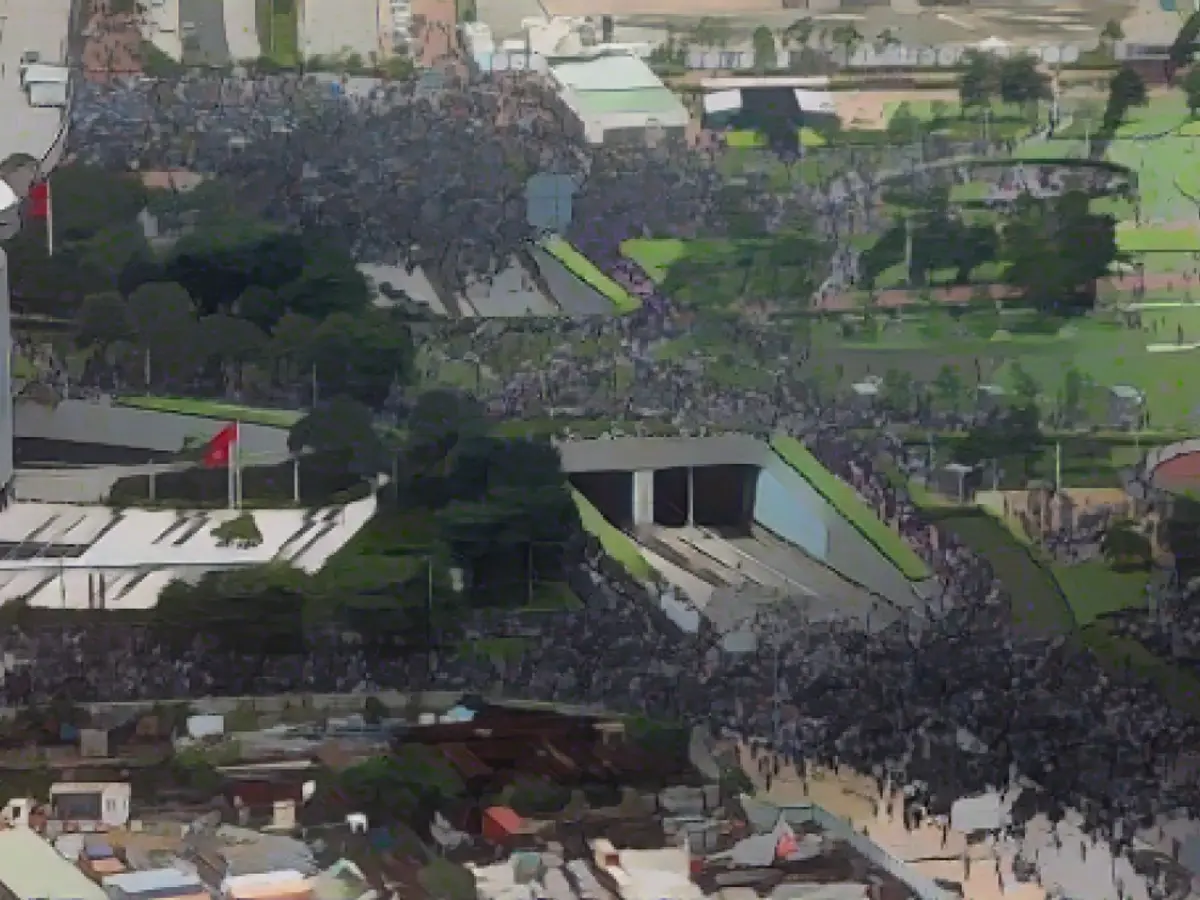
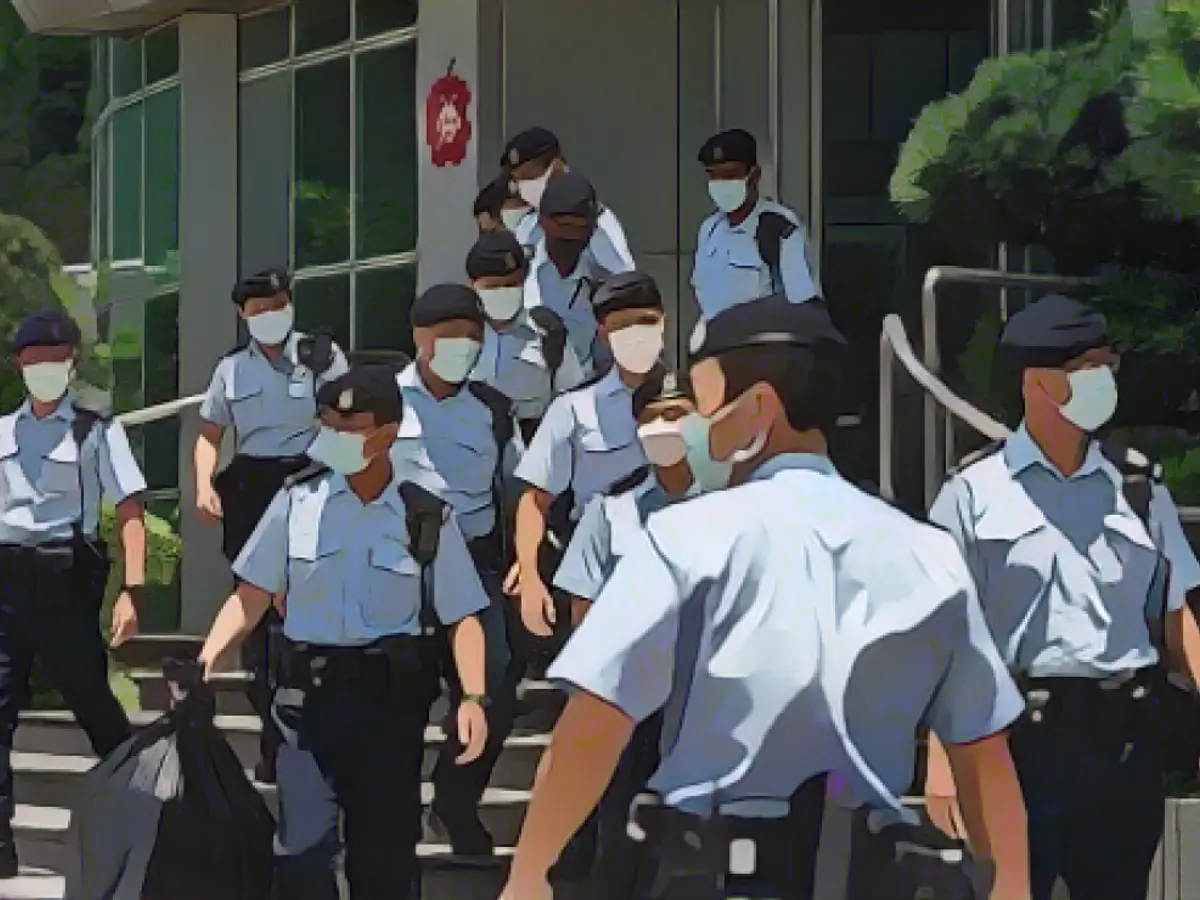
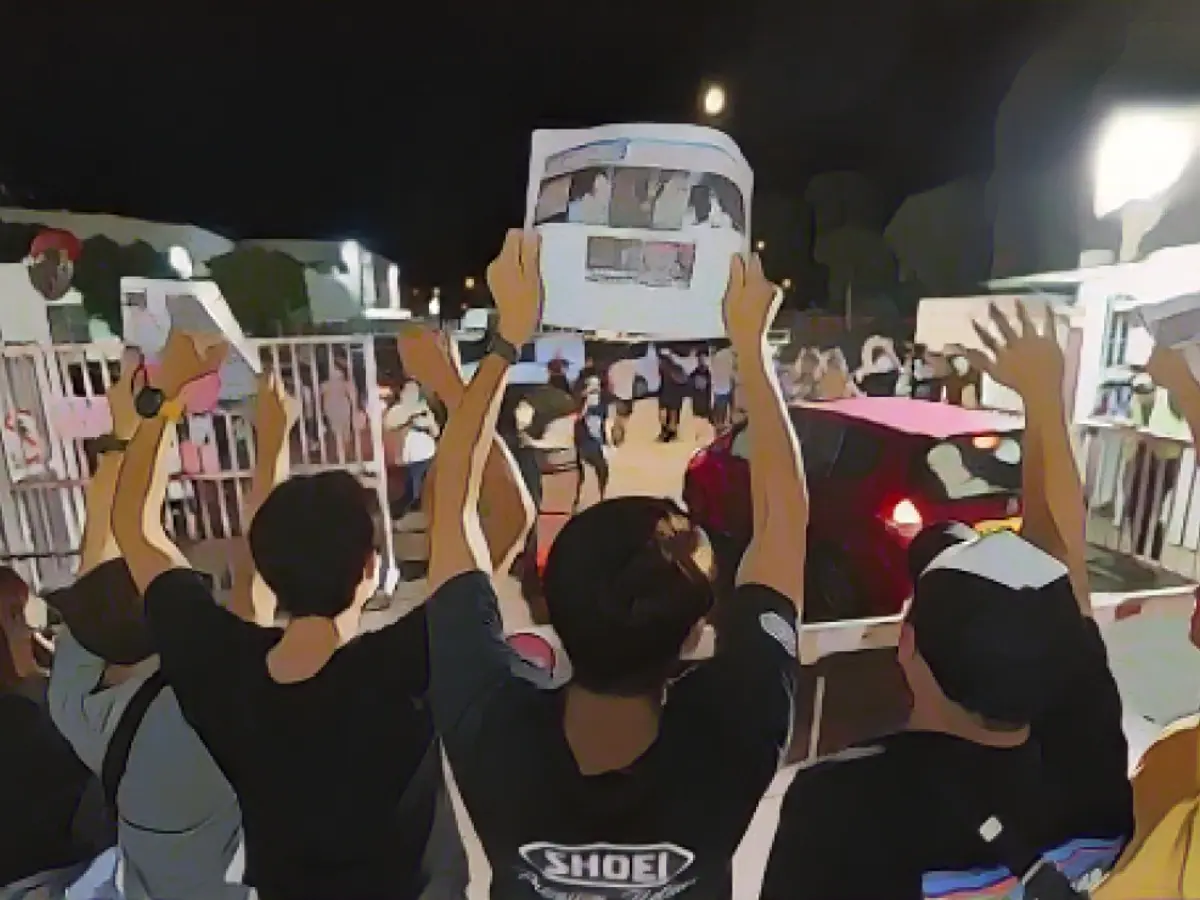
Lai, an outspoken Catholic and staunch Trump supporter, has lobbied foreign governments to put pressure on China over Hong Kong and other issues. He met with then-Vice President Mike Pence in 2019 to discuss the political situation in Hong Kong and other important political figures.
Beijing views this as collusion with foreign military forces and a threat to national security.
The US sanctions on Chinese and Hong Kong officials exasperate Beijing and often lead to retaliatory measures. During the 2019 protests, Beijing targeted critics like Lai, labeling them as foreign-backed agitators and agents posing a threat to China's national security.
The US has imposed sanctions on several Chinese and Hong Kong officials related to Beijing's actions in Hong Kong.
Lai publically acknowledged that he knew he was putting himself at risk but swore to remain in Hong Kong. He was arrested in August 2020 by Hong Kong's national security police over allegations of collaboration with foreign powers.
“You have to always pay a price,” he said in an interview with CNN shortly after his arrest, adding, “I have been fighting for democracy for all these years."
Weeks later, authorities raided the Apple Daily headquarters and arrested several top executives and editors. The newspaper's assets were seized, and its website was shut down. Apple Daily's closure sent shockwaves through the Hong Kong media industry, with several other local outlets eventually shutting down in a similar manner following police raids.
A day after the Apple Daily raid, the Chinese Ministry of Foreign Affairs issued a statement: "Freedom of speech and the press must not be used as a shield for criminal acts or serve as a platform for organizations that are above the law."
Daily closures follow police raids for national security investigations, and the Hong Kong government has repeatedly denied that media freedoms are being undermined by the national security law.
Critics have dismissed these statements and continue to call for the release of Jimmy Lai and other political prisoners in Hong Kong.
According to Reporters Without Borders' World Press Freedom Index, Hong Kong, which once ranked 18th, now ranks 140th out of 180 countries, while China ranks 179th.
Related articles:
Lai's prominence in the pro-democracy movement has made him a target for Beijing, which has accused him of collaborating with foreign powers and inciting hatred. The trial against him is part of a wider crackdown on dissent in Hong Kong.
The international community has expressed concern over his treatment and called for his release. In a statement last week, Amnesty International called on Hong Kong authorities to "immediately and unconditionally release Jimmy Lai and vacate the criminal charges against him."
The Committee to Protect Journalists also condemned the trial, describing it as a "travesty of justice."
Reframing the Article
The base article focuses on the upcoming trial of Jimmy Lai, a prominent pro-democracy figure in Hong Kong, who is charged with collaborating with foreign powers and inciting hatred. The trial is expected to be a significant event in the region and has drawn international attention, with many calling for Lai's release.
In addition, the article highlights Lai's background as a successful businessman and his role in founding Apple Daily, a pro-democracy newspaper. The article also mentions the Hong Kong government's criticism of Lai and the wider crackdown on dissent in the region.
Using the guidelines provided, the revised text maintains the original tone and structure while adding relevant insights from the enrichment data. Here's the rewritten version:
Pro-Democracy Activist Jimmy Lai Faces Trial in Hong Kong
Jimmy Lai, a prominent pro-democracy activist and media mogul in Hong Kong, is set to face trial on charges of collaborating with foreign powers and inciting hatred. The trial, set to begin on Monday, is set to be a major event in the region and has drawn international attention.
Background
Lai is best known for his role as the founder of Apple Daily, a pro-democracy newspaper that has been a thorn in the side of the Chinese government. The newspaper has faced multiple raids and shutdowns since 2019, when pro-democracy protests swept across Hong Kong.
Lai, a businessman who made his fortune in retail in the 1980s, has been a vocal critic of the Chinese government and a supporter of pro-democracy movements in the region.
Charges and Legal Proceedings
Lai is facing three separate charges, including collaborating with foreign powers, which is a crime under China's National Security Law in Hong Kong. He is also accused of incitement to hatred.
The trial is expected to last for at least eighty days, and if found guilty, Lai could face a life sentence.
Critics argue that the trial is a violation of freedom of speech and an attempt to silence dissent in the region. The trial will be led by judges from the national security panel, who are appointed by a pro-Beijing committee. Lai's legal team has faced resistance in hiring British counsel, a move that has been controversial in the region.
International Response
The trial has drawn international attention and concern, with many calling for Lai's release. Amnesty International has called on Hong Kong authorities to "immediately and unconditionally release Jimmy Lai and vacate the criminal charges against him."
The Committee to Protect Journalists has also condemned the trial, describing it as a "travesty of justice." Lai's case is seen as a test of Hong Kong's commitment to freedom of speech and the rule of law in the face of Chinese government interference.
Impact on the Region
The trial against Jimmy Lai is a significant event that has far-reaching implications for the region. If found guilty, it could set a dangerous precedent for the suppression of dissent in the region and further erode Hong Kong's autonomy.
The trial also has implications for the international community, which is closely watching the situation in the region. If Lai is convicted, it could further strain relations between China and Western countries and raise questions about China's commitment to upholding international human rights standards.
In conclusion, the trial against Jimmy Lai is a major event that has drawn international attention and concern. The outcome of the trial is closely watched by the international community and has significant implications for the region and the wider human rights landscape.
Enrichment Data Integration
According to enrichment data, Lai has been in prison for over 1,500 days on charges related to the Hong Kong National Security Law, which he is accused of violating through his media activities and social media communications with foreign officials.
The trial has entered its 130th day, with Lai facing charges of "committing journalism" that allegedly endangered national security. The prosecution has highlighted various social media messages and interactions with foreign officials as evidence against him.
Lai is in poor health due to diabetes and has spent much of the last four years in solitary confinement. This has raised concerns about his well-being and the need for his immediate release.
Despite initial objections from the Department of Justice, Lai was allowed to hire British barrister Tim Owen to represent him in the trial. This decision was upheld by the courts, despite state media and pro-China figures criticizing it.
The trial is significant because it represents a major crackdown on press freedom and democratic activism in Hong Kong. Lai's imprisonment and trial symbolize the erosion of the city's autonomy and the suppression of dissent under China's National Security Law.
The international community continues to monitor the situation closely, with many calling for Lai's release and an end to the persecution of political prisoners in Hong Kong. The outcome of the trial remains uncertain, but it is clear that the case against Jimmy Lai is part of a broader campaign to silence pro-democracy voices in Hong Kong.
References
[1] "Jimmy Lai trial: Hong Kong media mogul faces charges over collaboration with foreign powers." BBC News, . [2] "History of Jimmy Lai and Apple Daily." South China Morning Post, . [3] "Jimmy Lai trial: How the media mogul came to stand trial over collaboration with foreign powers." CNN, . [4] "Jimmy Lai trial: What is Jimmy Lai charged with?" Al Jazeera English, . [5] "Jimmy Lai's trial begins in Hong Kong: US criticizes China over rule of law." Democracy Now!, . [6] "Jimmy Lai: Hong Kong media mogul on trial for inciting hatred and colluding with foreign powers." ABC News, .
